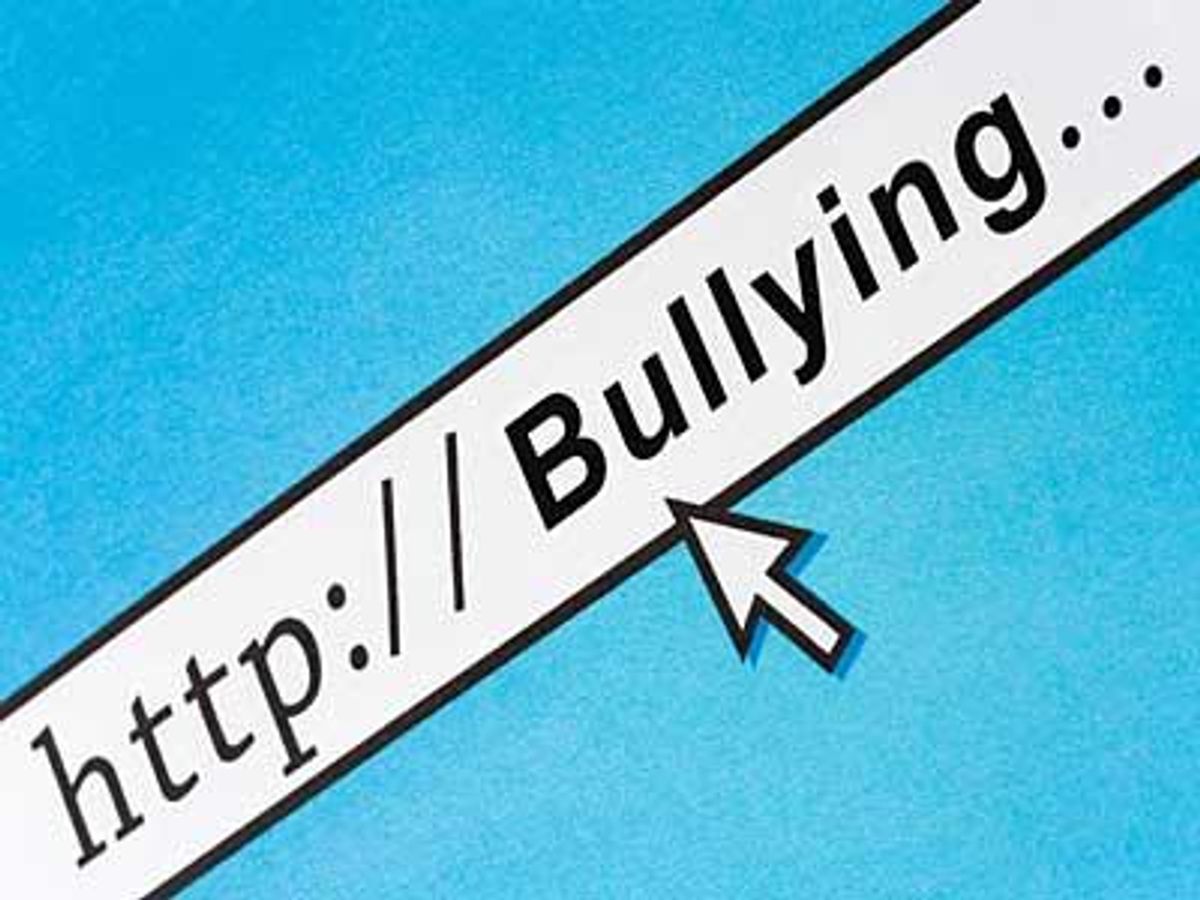Electronic communications such as text messaging, blogs, and social networking sites will become part of the terrain that New York schools must target in their antibullying strategies following the passage of cyberbullying legislation Monday.
The measure, which defines "cyberbullying" as "harassment or bullying that occurs through any form of electronic communication," extends the Dignity for All Students Act passed by the legislature in 2010. That legislation, which takes effect next month after a two-year implementation period, prohibits harassment in schools on the basis of traits including sexual orientation as well as gender identity and expression, marking the first time New York state lawmakers passed a measure with specific protections for transgender individuals.
Some 15 states have enumerated antibullying laws that include sexual orientation and gender identity and expression, according to the Gay, Lesbian, and Straight Education Network. No federal law or policy requires schools to address bullying, and across the country a growing patchwork of state and local laws and policies have been attempting to address the problem as awareness increases of bullying in school and online. New Jersey lawmakers adopted what is widely considered to be the toughest antibullying law in the nation two years ago after the suicide of Rutgers freshman Tyler Clementi. Last year, in a well-publicized case in New York, Buffalo-area high school freshman Jamey Rodemeyer took his own life after struggling with antigay bullying online for more than a year.
According to a news release from the New York State Assembly, the cyberbullying amendment to the Dignity act will "establish protocols to respond to cyberbullying, harassment, bullying and discrimination, including designating a school official to receive and promptly investigate reports; take actions to prevent recurrences; coordinate with law enforcement when appropriate; and develop a bullying prevention strategy; and provide notice to all school community members of the school's policies. It would also set training requirements for current and new school employees."
The cyberbullying component of the law will take effect next year in order to give schools time to incorporate the changes, said Assembly member Daniel O'Donnell, who spearheaded the Dignity effort. The gay Manhattan lawmaker said that the bill, which protects all students, represents an especially important next step for LGBT individuals after the passage of marriage equality legislation in the state last year. A recent survey from the Human Rights Campaign, "Growing Up LGBT in America," found that 38% of LGBT youth reported being bullied online, compared to 11% of non-LGBT youth.
"What's left is dealing with LGBT youth," said O'Donnell in a telephone interview. "People are coming out at a much younger age, coming to terms with their sexuality at a younger age. Because of those positive changes, that also means that kids are at risk. I can't find a gay person growing up who wasn't bullied."
The Assembly and Senate passed the bill with bipartisan support after Gov. Andrew Cuomo and legislative leaders came to an agreement over the weekend. In a memo to his program bill, the governor called cyberbullying a "new and especially insidious form of bullying." The memo cited a 2011 survey that found 18% of New York high school students had been bullied on school property during the previous year, while nearly 16% had been cyberbullied through electronic communications such as email, instant messaging, and text messages.
"Students today live in a cyber-world - it's how most choose to communicate," said Sen. Stephen Saland, a Republican from Poughkeepsie who sponsored the bill, in a statement. "It's also how many are cyberbullied -- whether through messaging, emails, or social networking sites, it's difficult for victims to escape the 24/7 exposure to threats, bullying, or discrimination. With this new law, when cyberbullying impedes a student's ability to learn, victims and their parents will now have the ability to report the incidents to school districts to investigate. This is a critically needed step toward ensuring a safe school environment."
As more states look to fight cyberbullying in response to high-profile incidents, the efforts inevitably spark constitutional questions about students' rights to free speech and expression. O'Donnell said the New York bill relies on language in Doninger v. Niehoff, a case decided by the U.S. Court of Appeals for the Second Circuit in 2008. The court held that a Connecticut high school student could be barred from running for class office on the basis of a blog post published off campus that harshly criticized school administrators, writing that the post could create a "foreseeable risk of substantial disruption to the work and discipline of the school."
"The bill is an amendment to Dignity which expands Dignity to include cyberbullying," said O'Donnell. "What this Dignity bill does is, if reasonably foreseen that it would cause major school disruption, then the schools are permitted to discipline. We define cyberbullying and include cyberbullying within the confines of the Dignity bill."
Despite a push from at least one Democratic senator, the bill will not impose criminal penalties specifically for cyberbullying. The final legislation is limited to awareness and reporting, which O'Donnell, a former public defender, called the right approach. He argued that the law already provides for penalties if cyberbullying escalates to a criminal level.
"There's no place for this in the criminal justice system," he said. "All of the research, all of the experts, say that is the wrong approach. If you assault someone, you assault them. You don't need to expand that."
Advocates hailed the passage of the cyberbullying bill, one of a handful of remaining priorities. The most high-profile item, the Gender Expression Non-Discrimination Act, failed to advance this session as lawmakers appeared poised to conclude business this week.
"This cyberbullying legislation coupled with the July 1, 2012, implementation of the Dignity for All Students Act are important to creating safe, welcoming learning environments for all students," said Lynn Faria, interim executive director of the Empire State Pride Agenda. "This bill's passage by the Assembly today is another critical step in making sure that students are protected from harm by mandating that all incidents be immediately reported to the school principal for investigation and all students required to learn about safe and responsible use of the internet as part of the school's character education which was created by the Dignity for All Students Act. We encourage the governor to follow the lead of the legislature and immediately sign the bill into law."
The governor's office did not immediately respond to a request for comment about when the bill would be signed.


















































































